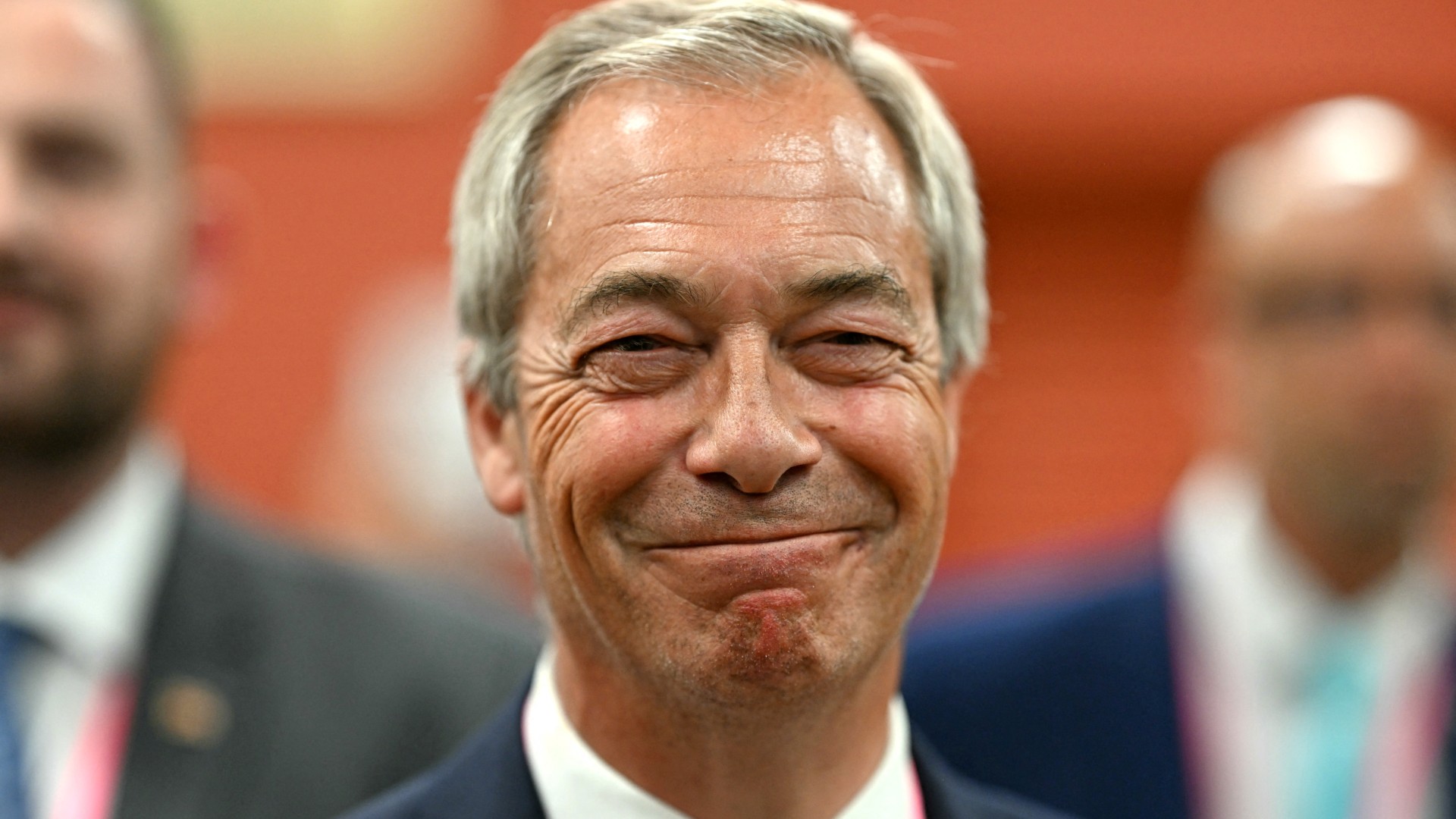Reform surge: which party should be most afraid?
Both Tories and Labour take an electoral battering that could upend UK party politics

A free daily email with the biggest news stories of the day – and the best features from TheWeek.com
You are now subscribed
Your newsletter sign-up was successful
Reform UK has successfully converted its recent opinion-poll surge into a string of ballot-box victories across England – solidifying its status as an electoral threat to the country's two main political parties.
Most eye-catching of all was the win in this parliament's first by-election, with Reform candidate Sarah Pochin snatching the once-safe Labour seat of Runcorn and Helsby by a mere six votes.
Nigel Farage's insurgent right-wing party also won its first mayoral contest, with Andrea Jenkyns taking 42% of the vote in Greater Lincolnshire, far ahead of the Conservative candidate's 26%. In county-council elections, Reform looks to be gaining ground rapidly, too, taking about 35% of the vote share so far.
The Week
Escape your echo chamber. Get the facts behind the news, plus analysis from multiple perspectives.

Sign up for The Week's Free Newsletters
From our morning news briefing to a weekly Good News Newsletter, get the best of The Week delivered directly to your inbox.
From our morning news briefing to a weekly Good News Newsletter, get the best of The Week delivered directly to your inbox.
What did the commentators say?
The "big question" on everyone's lips as polls opened yesterday was whether Reform "now pose a significant challenge to both the Conservatives and the Labour party", political scientist John Curtice said in a BBC interview. "The answer to that question so far is quite clearly yes."
Reform's by-election victory confirms that this "still new" Labour government "is so deeply unpopular that it cannot hold one of its safest seats", said John Rentoul in The Independent. A "landslide general election win", just 10 months ago, "that matched the giddiness of Blairphoria" has now "turned into the humiliation of defeat at the hands of Nigel Farage". It also confirms that Morgan McSweeney, Keir Starmer's chief of staff, "is right to see Farage as the main threat to the Labour government".
For the Conservatives, it's even worse. They are losing support to Reform on the right and the Liberal Democrats on the left, said Nigel Jones in The Spectator. They are vulnerable both to "affluent middle-class progressives still upset by Brexit, and working-class communities concerned by mass immigration and the rising cost of living". The "big peril" is that "they're caught in an irreversible death spiral from which there can be no return."
"Voter volatility has been the foundation of Reform's swift rise," said Stephen Pollard in The Telegraph. But that could just as easily become its "Achilles heel" in the months to come. Reform's local-election triumphs mean "it is going to have to start running social care, transport, schools and collecting the bins". And Labour's "dreadful" start in government has shown just how difficult it is "to actually do things in power".
A free daily email with the biggest news stories of the day – and the best features from TheWeek.com
Reform doesn't seem to have much plan, other than "not being Labour or the Tories". And even if they did, they'd do well to remember boxer Mike Tyson’s "famous assertion that everyone has a plan until they get punched in the face. Reality tends to punch governments – and councils and mayors – in the face."
What next?
Council declarations will keep rolling in throughout the day, with the majority due by around 7pm. Reform is expected to take over several councils.
"Make no mistake, these results will shape the tone, tenor and focus of the political conversation" in the months ahead, said Chris Mason, political editor of the BBC. And both Labour and Tory politicians will be "staring, sleep-deprived, hard into the mirror and working out how to respond".
Sorcha Bradley is a writer at The Week and a regular on “The Week Unwrapped” podcast. She worked at The Week magazine for a year and a half before taking up her current role with the digital team, where she mostly covers UK current affairs and politics. Before joining The Week, Sorcha worked at slow-news start-up Tortoise Media. She has also written for Sky News, The Sunday Times, the London Evening Standard and Grazia magazine, among other publications. She has a master’s in newspaper journalism from City, University of London, where she specialised in political journalism.
-
 Local elections 2026: where are they and who is expected to win?
Local elections 2026: where are they and who is expected to win?The Explainer Labour is braced for heavy losses and U-turn on postponing some council elections hasn’t helped the party’s prospects
-
 6 of the world’s most accessible destinations
6 of the world’s most accessible destinationsThe Week Recommends Experience all of Berlin, Singapore and Sydney
-
 How the FCC’s ‘equal time’ rule works
How the FCC’s ‘equal time’ rule worksIn the Spotlight The law is at the heart of the Colbert-CBS conflict
-
 Local elections 2026: where are they and who is expected to win?
Local elections 2026: where are they and who is expected to win?The Explainer Labour is braced for heavy losses and U-turn on postponing some council elections hasn’t helped the party’s prospects
-
 The Mandelson files: Labour Svengali’s parting gift to Starmer
The Mandelson files: Labour Svengali’s parting gift to StarmerThe Explainer Texts and emails about Mandelson’s appointment as US ambassador could fuel biggest political scandal ‘for a generation’
-
 Reforming the House of Lords
Reforming the House of LordsThe Explainer Keir Starmer’s government regards reform of the House of Lords as ‘long overdue and essential’
-
 How long can Keir Starmer last as Labour leader?
How long can Keir Starmer last as Labour leader?Today's Big Question Pathway to a coup ‘still unclear’ even as potential challengers begin manoeuvring into position
-
 Three consequences from the Jenrick defection
Three consequences from the Jenrick defectionThe Explainer Both Kemi Badenoch and Nigel Farage may claim victory, but Jenrick’s move has ‘all-but ended the chances of any deal to unite the British right’
-
 The high street: Britain’s next political battleground?
The high street: Britain’s next political battleground?In the Spotlight Mass closure of shops and influx of organised crime are fuelling voter anger, and offer an opening for Reform UK
-
 The MAGA civil war takes center stage at the Turning Point USA conference
The MAGA civil war takes center stage at the Turning Point USA conferenceIN THE SPOTLIGHT ‘Americafest 2025’ was a who’s who of right-wing heavyweights eager to settle scores and lay claim to the future of MAGA
-
 How cryptocurrency is changing politics
How cryptocurrency is changing politicsIn The Spotlight From electoral campaigns to government investments, crypto is everywhere and looks like it’s here to stay